TV host Anna Williamson says traumatic birth 'was like living in hell'
TV presenter Anna Williamson, 42, did everything she could to prepare for her first child, but ended up having such a traumatic birth that she was left with PTSD, depression and borderline psychosis. To help raise awareness during Birth Trauma Awareness Week, she shares her story.
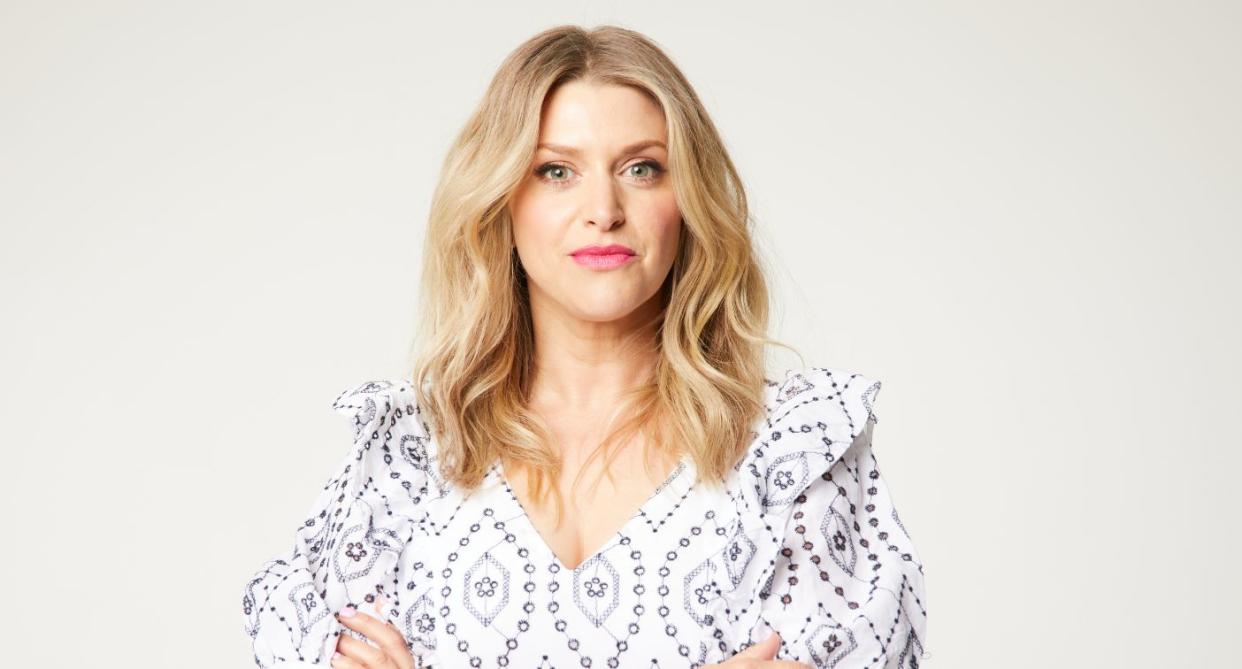
When Celebs Go Dating agent Anna Williamson isn't on our screens, she's a successful life coach and therapist. But the TV host has had her own fair share of 'life experiences' to overcome, no doubt where her drive to help others comes from.
The birth of her first son was traumatic, leaving her and her husband seriously struggling to navigate life as first time parents. Her son was in an awkward position, so first she struggled to push him out during a 40-hour labour, then suffered haemorrhaging and was barely conscious by the time he was eventually born, using forceps. With hindsight, Anna believes she wasn't in a fit state to fully consent to forceps being used either and wishes she'd been given more information beforehand.
Two in five women (42.4%) giving birth have had procedures performed on them without their consent, a new survey by the Birth Trauma Association reveals. Meanwhile, although nearly 70% have had operating room procedures (such as a c-section) that required written consent, of those, over half (53.3%) said they did not feel fully competent to have agreed to it.
In light of this, Anna shares how deeply the birth affected her and how she managed to come to terms with the experience...
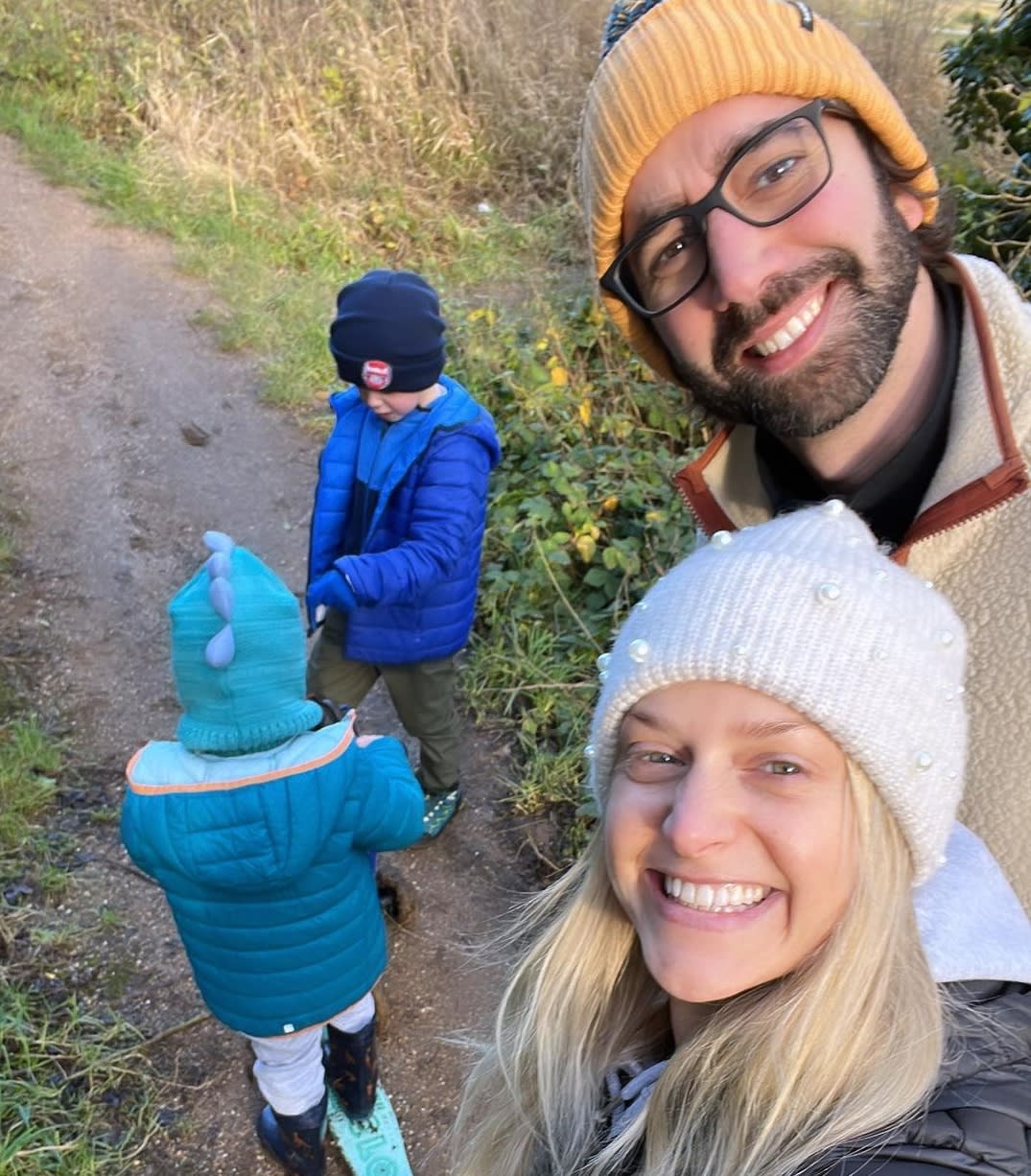
What was the lead-up to your first child like?
I was that first time pregnant mum doing all the things you think you should do, or see people on Instagram doing. I did the antenatal and hypnobirthing classes, and bought all the stuff I didn't actually need. All the prep was there.
Physically I had a very good pregnancy, but mentally I was struggling. I had perinatal anxiety, which was later diagnosed, and I was very anxious about the birth. I was fortunate that I had fallen pregnant quite quickly, and I think with birth trauma, there's still a lot of guilt around thinking 'but others have it worse than me,' which doesn't really help anybody.
What happened during the birth of your son?
As many first time mums do, I went over by nearly two weeks, which ramped up my anxiety. I went into labour naturally, but it was a very long 40-hour labour, and I was tired and struggling to push him out myself. Suddenly it all got panicky and I was told I needed a forceps delivery to get him out because his head was stuck, or an emergency caesarean, so was prepped for both. I had the forceps delivery and I remember feeling like my body wasn't my own.
My forceps delivery was a really traumatic experience and I certainly hadn't been prepared antenatally.
I completely understand that sometimes it is a life or death situation for mother and baby. However, where possible, I think informed consent really needs to be rethought. A lot of people do give consent, but it's done in such a rush because of the situation you're in and you're actually not really sure what you're consenting to.
When someone wafts a bit of paper in front of you, you sign the damn thing. You're so desperate, you trust the medical professionals. But a woman who's intensely in pain, 40 hours into labour, cannot coherently sign for a procedure or major surgery. My forceps delivery was a really traumatic experience and I certainly hadn't been prepared antenatally. I didn't know what it entailed and I didn't understand the severity of an episiotomy either.
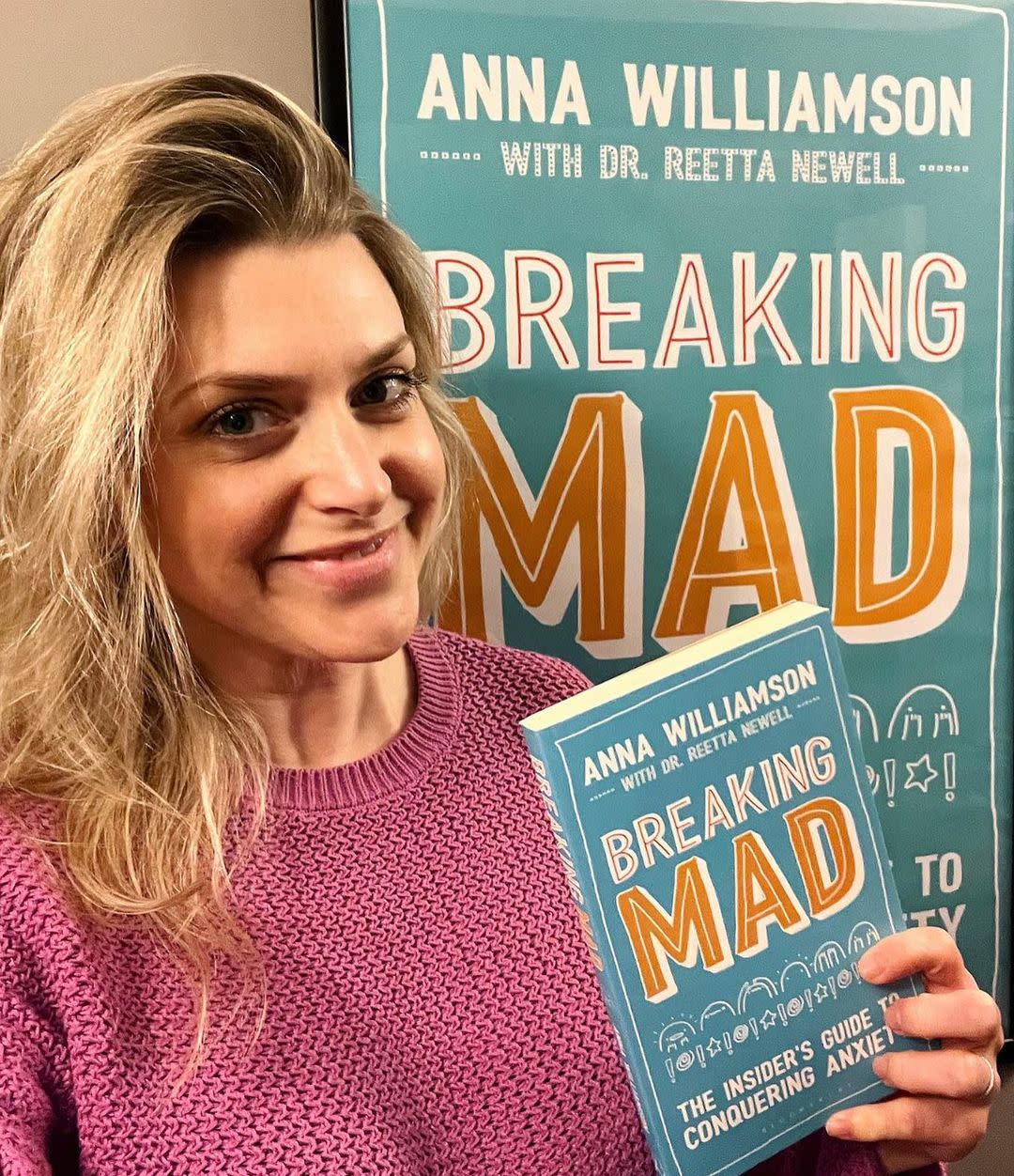
How can we prevent others from feeling how you did afterwards?
I was grateful to the medical professionals, but I really struggled with feeling disassociated from my body for a very long time afterwards. I felt like my body was a vessel that had been pulled around like a piece of meat and was physically in a very bad way.
I developed terrible birth trauma as a result. I had flashbacks from the procedure where it felt like I was on a torture bed. I think we need to offer more education, so women are consenting to procedures, fully knowledgeable in what they are actually signing. And this new survey shows two in five haven't even given consent.
I felt like my body was a vessel that had been pulled around like a piece of meat.
We don't want to plant a seed of horrible procedures and trauma in mothers. Birth is so normal and we don't want to be dramatic about it, but we shouldn't underestimate the impact it can have. I think there's a happy medium to be found with practical advice beforehand on if something happens, which involves your choice. You might want to bring your partner or an advocate [into the midwife appointment] to really understand it.
Tell me more about the PTSD and depression you experienced...
My PTSD was combined with anxiety, depression and borderline psychosis. I was having intrusive thoughts about throwing my baby out of a window, which I knew I didn't want to do. I was hallucinating, hearing babies crying all the time elsewhere. I wasn't able to sleep. I wasn't able to produce breast milk because I was so traumatised it blocked the production of the love hormone oxytocin, which is also the bonding hormone.
I was hallucinating, hearing babies crying all the time elsewhere. I wasn't able to sleep.
It was like an electric plug socket had come out the wall and I felt nothing. It felt like a big black hole where I was so detached from myself, my baby, everything. It was like living in hell and not feeling able to tell anyone. All anyone else sees is the little baby and they say, "Oh, you're going to feel a bit sore you've had a baby." You feel silenced into not making a fuss, thinking everyone else must be a lot braver and I must be a terrible mother.
It was by far the most black time of my life, and yet I had the most perfect prize that I'd ever wanted. Thank god, through help and intervention, I got better. Now with my son, there's a very strong connection between the two of us. But I've always had an underlying level of guilt for those first few months, thinking... 'If I was stronger, better at pushing him out...'
We need to ask a mother if she has any of these thoughts – once they come out, it gets better, but when they stay in, the thought can breed like cancer.
How was your husband and your relationship after the birth?
Typically a woman shuts down and a birth partner feels helpless. They cannot possibly relate to what the birthing mother's just been through. But equally, their situation is also valid, they're also responsible for this birth.
I know my husband felt just as traumatised by the situation because he went through a moment thinking both his wife and child weren't going to make it. He felt guilty too, that he should have been better at advocating for me, but he was also uninformed.
We were struggling with 'happy families' and how to look after this baby for the first time.
We were struggling with 'happy families' and how to look after this newborn baby for the first time. There's a wife with deep-rooted birth trauma and her husband hasn't got a clue how to even spot what that is, let alone help it. The only thing that saved us was moving back in with my parents for several weeks after the birth. A lot of people aren't that fortunate.
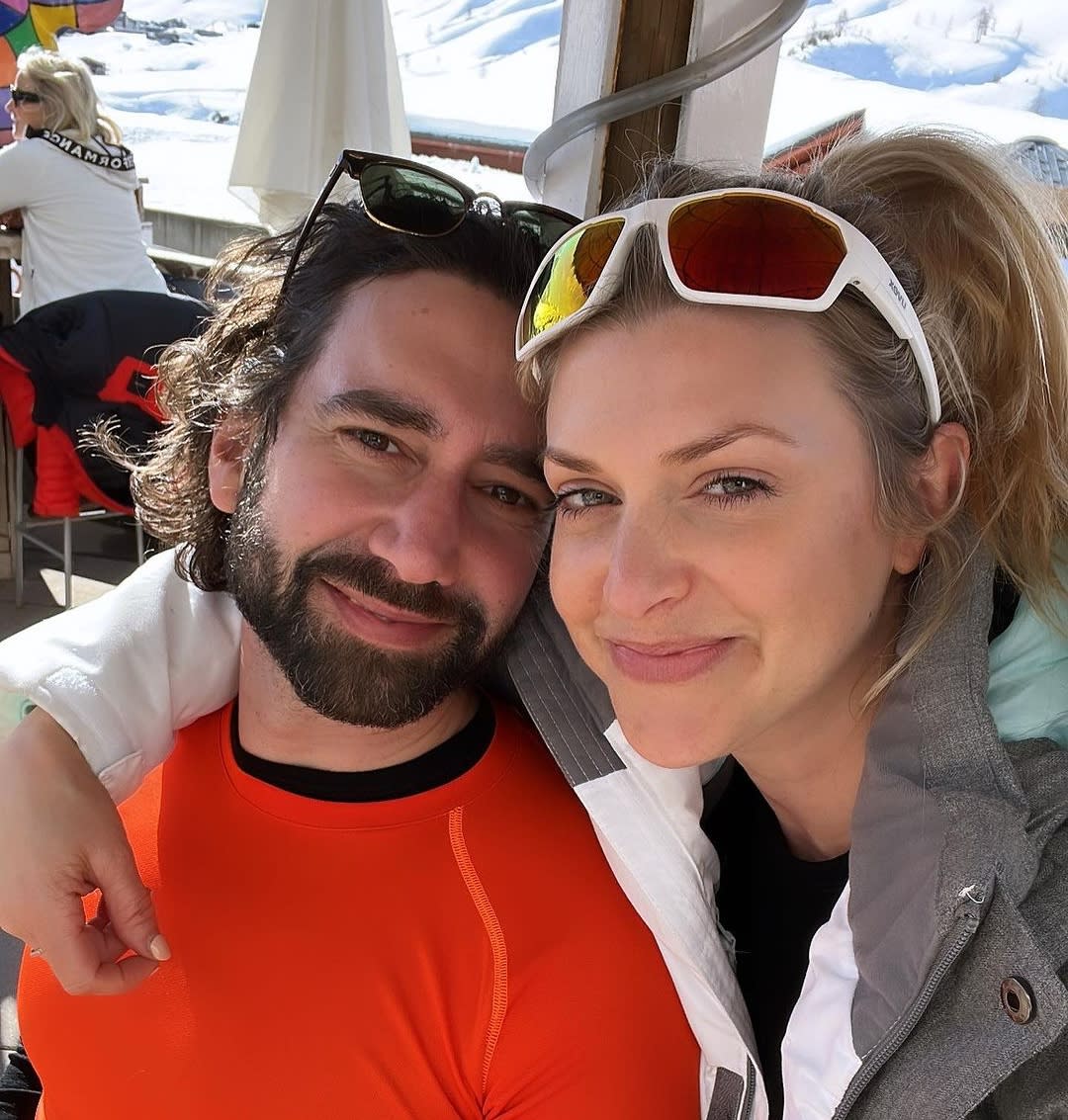
How did you manage having a second child?
We'd always wanted lots of children, but I said I was never having another one. Then when my son was two and a half, he really wanted a sibling and things had got better, I was loving parenthood. I contacted my perinatal mental health community team and saw a consultant psychiatrist and had a meeting about what it would look like if I did have another baby.
I was offered psychological support, EMDR therapy (Eye movement desensitisation and reprocessing therapy), and we came up with a plan of how to support me mentally. I knew I was going to have a planned C-section before I even got pregnant. I did not want that baby to come out of my vagina. And with my second, a Christmas baby, it was about mitigating as much risk as I could. I wanted it to be calm and cool.
My husband and I looked at our options and went without a new car and a holiday to pay to have our baby at The Portland. I didn't feel posh, rich or famous enough for it. But it couldn't be further from the truth. The majority of people I met were normal people who had also had a terrible first birth and wanted a better experience. My planned C-section was an absolute dream come true. It feels very elitist, and it isn't fair. But it was a choice I had made and would again.
I do still feel passionately about the state of maternity healthcare in the NHS. We know the midwives are incredible, but there aren't enough of them, and they can't carry the weight of everything going wrong.
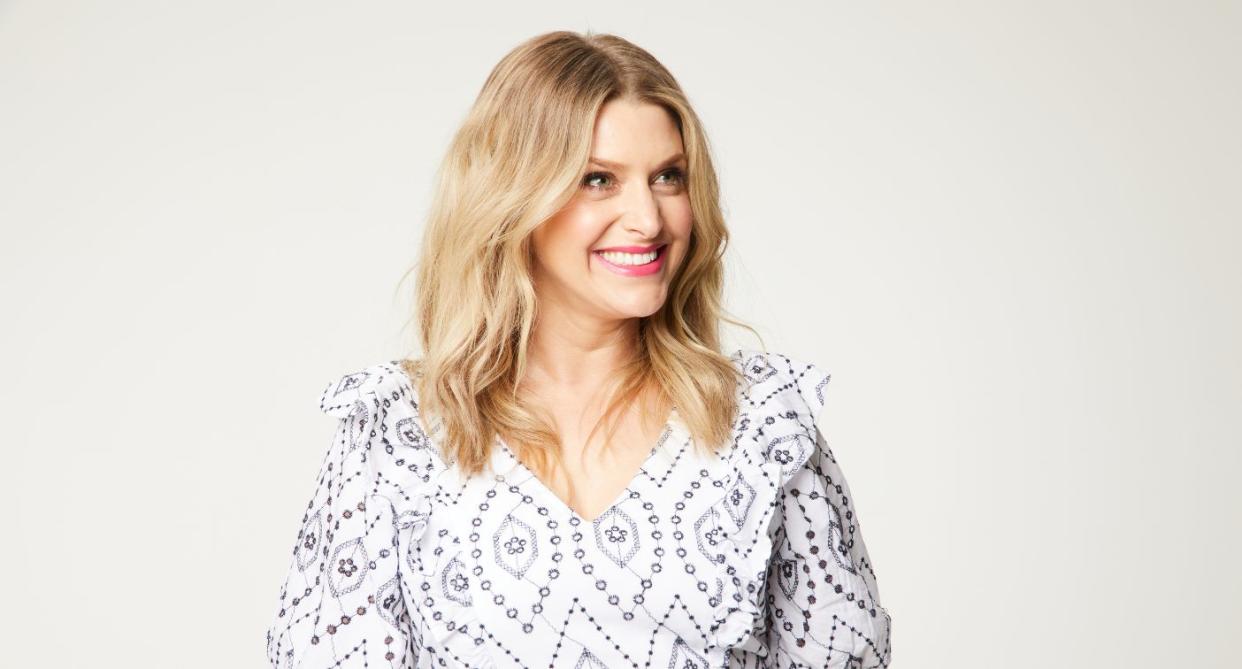
What advice do you have for other new mums or parents struggling?
Don't be afraid to ask questions – and more questions! Don't assume you should know the answer, why would you? You've never done this before. If you're still not happy, find someone else to answer them. Lean into your support system. Speak to your health visitors, midwives, GP and doctor.
If you are feeling mentally unwell, access the Birth Trauma Association. Don't sit in silence and don't in any way feel that you have done anything wrong. You did great. You just had a s*** experience, and that's not your fault. You only deserve empathy, sympathy and help, not shame and silence.
Birth Trauma Awareness Week, organised by the Birth Trauma Association LINK, runs from 15-21 July 20214. You can also contact Samaritans on 116 123.
Read more
TV host Anna Williamson on her controlling relationship and panic attacks (Yahoo Life UK, 8-min read)
The most common mental health conditions – and where to get help (Yahoo Life UK, 5-min read)


